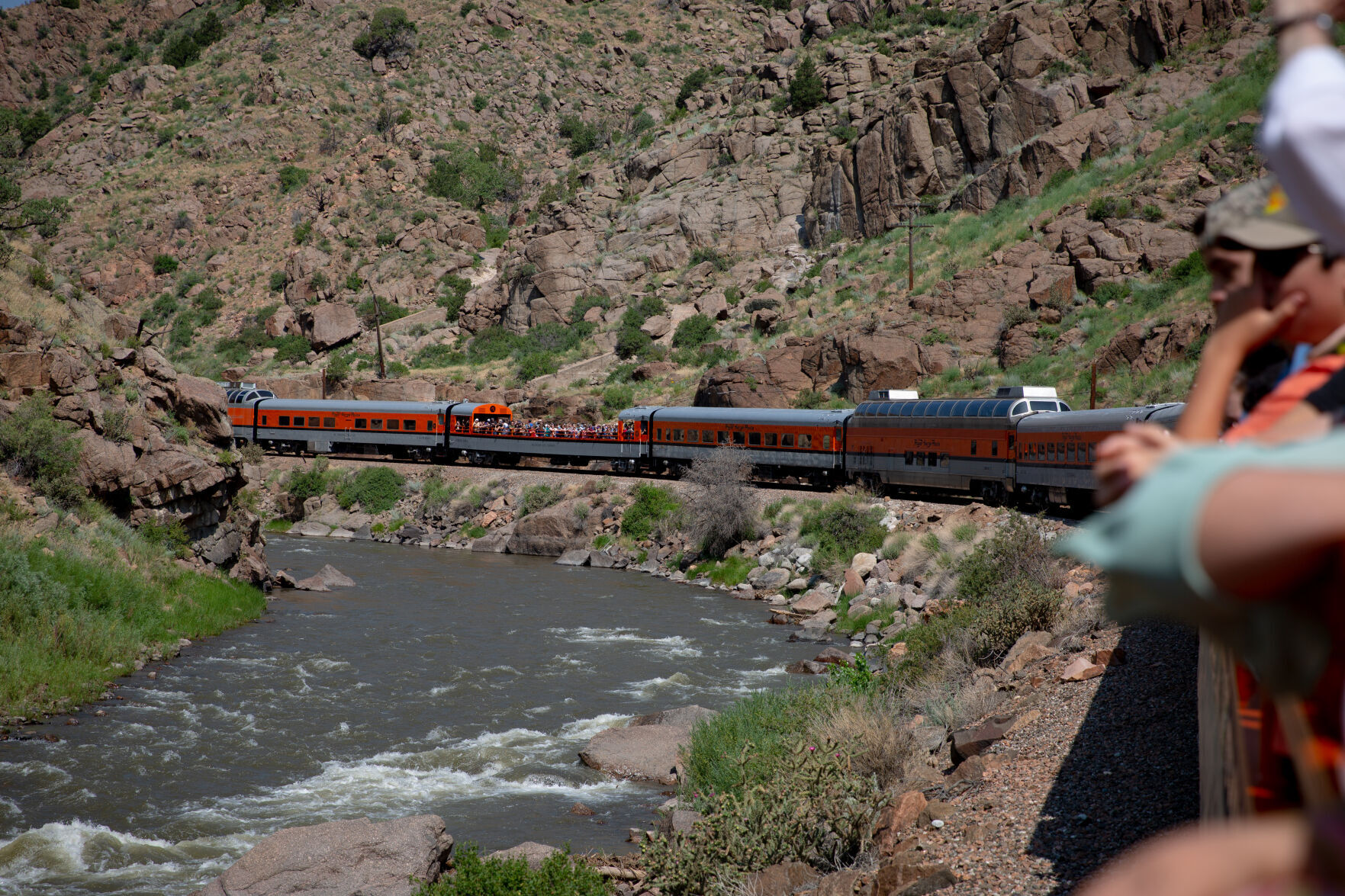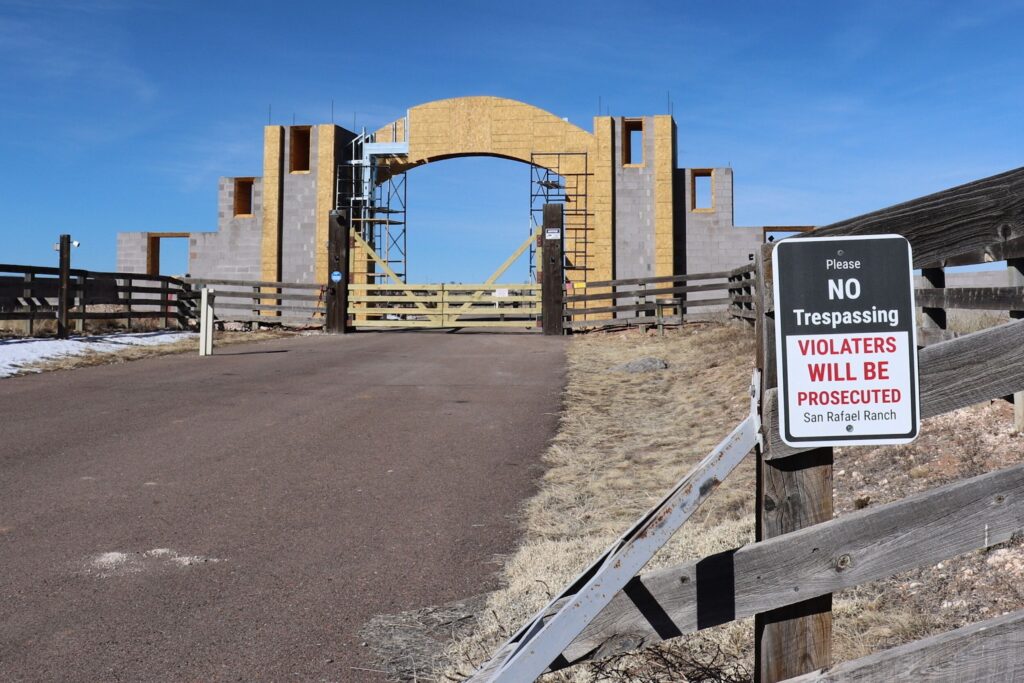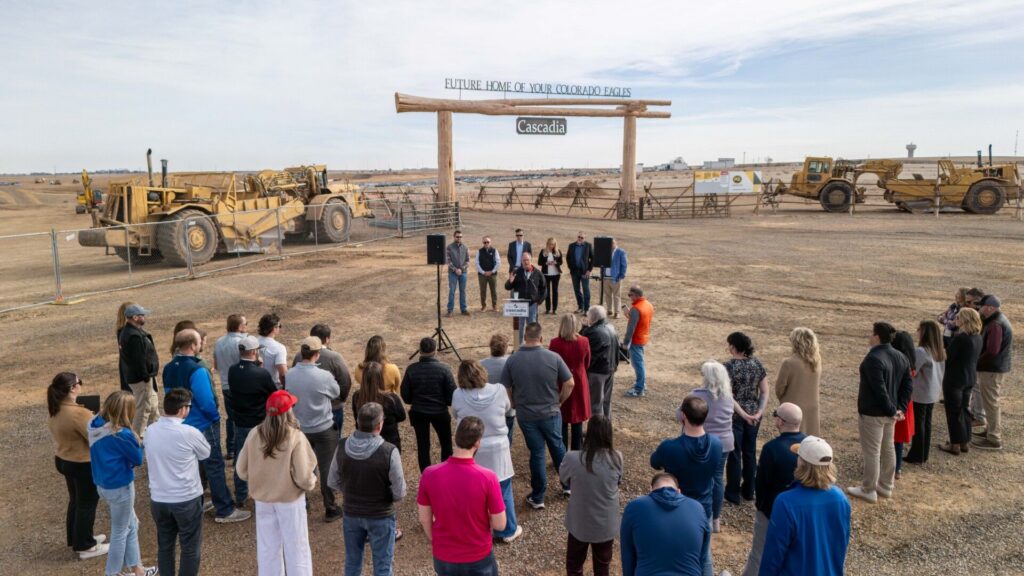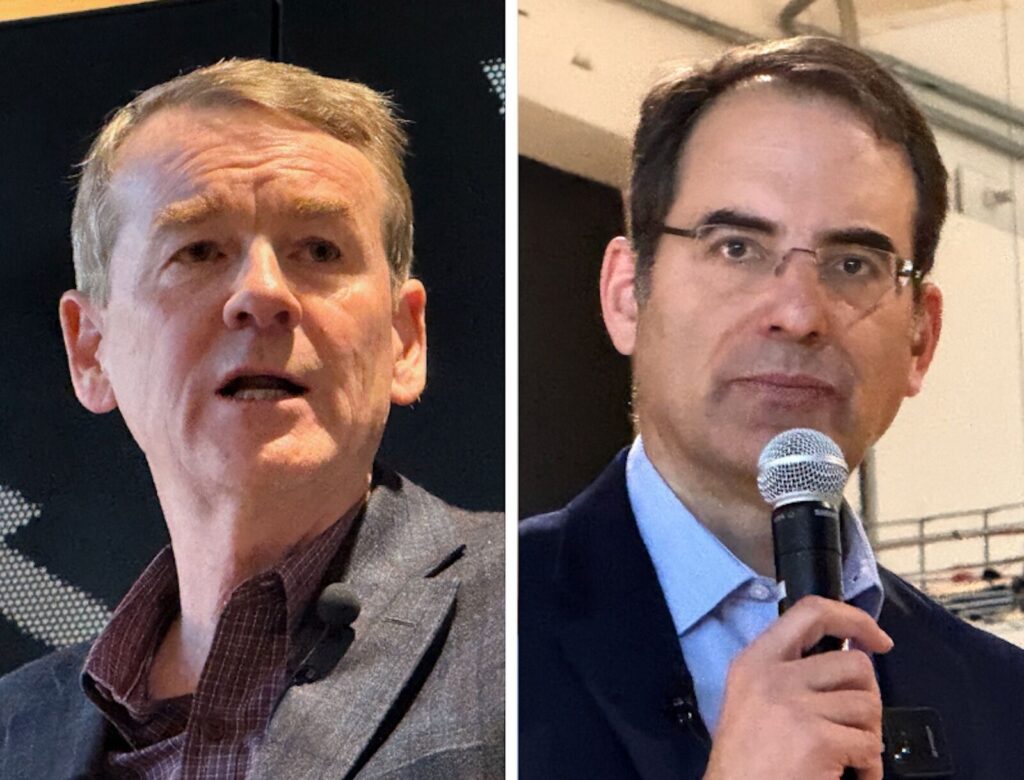Competition for railroad research, testing near Pueblo is heating up

Competition in the rail transportation industry is heating up outside of Pueblo.
MxV Rail and ENSCO will both operate railroad research and testing facilities about 15 miles of downtown Pueblo starting in October.
MxV Rail announced groundbreaking on a new rail test track at the PuebloPlex industrial park campus Friday, after a name change and move 11 miles south from its former home at the Transportation Test Center, owned by the federal Department of Transportation.
ENSCO is taking over operation of the TTC under a federal contract.
“TTC was initially established by the federal government as a high-speed test center where they were testing out maglev type technology. There hasn’t been any forward movement there recently,” Kari Gonzales, president and CEO of MxV Rail, told The Denver Gazette.
A world record for rail speed of 255.4 mph was set at the TTC on Aug. 14, 1974.
In 1974, the focus on high-speed rail transportation was de-emphasized and the test site was handed over to the Federal Railroad Administration. The agency set up a public-private partnership with the Association of American Railroads in 1982.
The association, founded in 1934, is a railroad research, standard setting, technology and policy consortium that focuses on safety and productivity in the rail industry. MxV Rail is privately funded by the association and others and is a wholly owned subsidiary of the association.
“We are a third party, independent assessor of technology,” said Gonzales. “When you look at what our specific role is, it’s working with vendors and suppliers, being able to take their product, test it in a controlled environment and come up with ways to safely deploy it. “
In 2021, the Federal Railroad Administration awarded a government contract to operate the TTC to ENSCO, an international technology enterprise in the national security, aerospace, surface transportation and cybersecurity sectors.
It is unclear whether the two operations will directly compete against each another in the rail research and testing field.
ENSCO’s operations extend beyond rail technology and include other forms of surface transportation, including the trucking industry.
With its contract at the TTC up, MxV Rail began shifting operations to PuebloPlex, a new industrial park located on the U.S. Army’s Pueblo Chemical Depot some 10 miles east of downtown Pueblo.
According to Gonzales, when its contract expired, MxV Rail decided to relocate to PuebloPlex “to make sure that we have the capabilities that we need to run an independent operation.”
The Pueblo Chemical Depot, built in 1942, is known for being a storage facility for U.S. chemical weapons since 1952. Some 780,000 munitions comprising 2,613 tons of mustard gas were stored there. In 2015, the depot was re-tasked with destruction of those chemical weapons, which is scheduled to be completed in 2023.
When that mission is complete, Chris Bolt, director of operations at PuebloPlex, says he is working with the base realignment closure office to transfer the property so it can be redeveloped for the community.
“It’s huge economically,” said Bolt. “We’re going to be able to keep at least (300) to 400 jobs here locally. And those are nice engineering and other jobs that support the MxV Rail mission.”
MxV Rail selected PuebloPlex and the Pueblo Chemical Depot in part because of the existing railroad network on the base used historically for military munitions movement.
The company is building new rail infrastructure as well to test high-speed equipment.
According to MxV Rail’s promotional materials, a high-speed loop “will be MxV Rail’s largest test loop at 5.8 miles and will support a vast array of freight and passenger rail programs including performance testing for new rail technologies, and qualification testing for rolling stock.” Completion is expected in September.
Additionally, MxV Rail is working with Swisspod, a Swiss company researching hyperloop technology, and Gonzales says infrastructure for that should be ready by the end of the year.
As the TTC’s previous operator, MxV Rail has been the national leader in hazardous materials emergency response training. According to Gonzales, since 1982, it has trained more than 70,000 firefighters and other first responders how to safely deal with chemical spills and fires involving railcars.
Gonzales said its new training facility, under construction, will be even larger and offer many more scenarios and practical exercises than at the TTC, as will its classroom facilities. The training facility is expected to be completed in October.













